How to overthrow a dynasty with one simple, god-tier excuse.
1️⃣ Let Me Explain This Real Quick
TL;DR:
The Zhou Dynasty invented the ultimate political justification called the “Mandate of Heaven” to overthrow the previous Shang Dynasty. It basically meant that the ruler was chosen by the gods (Heaven), but if they became a corrupt tyrant, Heaven could fire them and give the job to someone else (aka the Zhou).
What Actually Happened:
- The Original Rulers (The Shang): The Shang Dynasty was in charge, but their final king was reportedly a real piece of work—think lavish parties while his people starved.
- The New Bosses (The Zhou): A rising power called the Zhou clan decided they’d had enough. They clobbered the Shang in the Battle of Muye around 1046 BCE.
- The Justification: To avoid looking like common usurpers, the Zhou rulers announced their brilliant new idea: the Zhou Dynasty Mandate of Heaven. They claimed the Shang king had lost Heaven’s favor through his wickedness, and Heaven had passed the divine right to rule to the virtuous Zhou leaders.
- The Fine Print: This came with a catch. The Zhou Dynasty Mandate of Heaven meant a ruler had to be good, just, and moral. If disasters like floods or famines happened, it was a sign Heaven was displeased, and the people had the right to rebel.
Why It Mattered:
This wasn’t just a one-time excuse. The Zhou Dynasty Mandate of Heaven became the bedrock of Chinese political philosophy for over 3,000 years, justifying the rise and fall of every dynasty until the 20th century.
Bonus Fun Fact:
The Zhou Dynasty was the longest-lasting dynasty in Chinese history, ruling for nearly 800 years (c. 1046 BCE to 256 BCE). Though for the last half of it, the king’s power was about as real as a chocolate teapot.
Oversimplified Rating: 👑👑👑👑👑 Divine Right to Rule (with an Escape Clause)
2️⃣ You Want the Real Story? Okay, Settle In.
What Led to It? The Cosmic Justification for a Coup
Before the Zhou, China was dominated by the Shang Dynasty. The Shang were known for their impressive bronze work, early writing on oracle bones, and a rather grim fondness for human sacrifice. Their power was absolute, rooted in ancestry and their connection to the high god, Di.
But by the 11th century BCE, the Shang Dynasty was showing signs of decay. The final Shang king, King Zhou (no relation to the Zhou people, confusingly), is painted in history as a textbook villain. Chronicles written by the successors (so, grain of salt) accuse him of cruelty, corruption, and throwing wild, debauched parties while ignoring the duties of state.
Meanwhile, on the western frontier, the Zhou clan was growing stronger. They were vassals of the Shang but were becoming more powerful and organized. Their leader, King Wen, laid the groundwork for rebellion through diplomacy and good governance. His son, King Wu, was the one who finally took action. But overthrowing a dynasty was a big deal. You couldn’t just say, “We wanted the throne.” You needed a reason—a really, really good one. You needed a concept that made your rebellion not just a power grab, but a moral and cosmic necessity.
This is where they cooked up their masterstroke: the Zhou Dynasty Mandate of Heaven (Tiānmìng).
How Did This “Mandate” Thing Actually Work?
The Mandate of Heaven was a brilliantly simple yet profound political and religious doctrine. It rests on four key ideas:
- Heaven Grants the Right to Rule: The right to rule China is granted by a divine, impartial force called Heaven. It’s not a birthright that can never be lost.
- There Is Only One Heaven, and Thus One Ruler: Since there is only one Heaven, there can only be one legitimate ruler (Emperor) of China at any given time.
- The Ruler’s Virtue Determines Their Right to Rule: The ruler’s right to rule is based on their moral virtue and their ability to govern well. They must be just, protect their people, and maintain harmony between heaven and earth.
- The Right to Rule Can Be Lost and Transferred: If a ruler becomes immoral, corrupt, or incompetent, Heaven will show its displeasure through natural disasters like floods, famines, earthquakes, or eclipses. These were seen as cosmic warnings. If the ruler didn’t clean up their act, Heaven would withdraw its mandate and pass it to a new, more virtuous leader.
This effectively gave the people a divine right to rebel against a tyrannical ruler. The Zhou Dynasty Mandate of Heaven transformed rebellion from a crime into a sacred duty to restore cosmic order.
What Happened Next? The Long, Slow Decline
The concept worked beautifully for the Zhou… at first. The initial period, the Western Zhou (c. 1046-771 BCE), was a time of stability and expansion. The Zhou kings ruled from their capital and established a feudal-like system, granting land to relatives and allies in exchange for loyalty and military service. The Mandate of Heaven provided a strong, centralized source of legitimacy.
But in 771 BCE, disaster struck. The capital was sacked by barbarians and rebellious nobles, forcing the Zhou to flee eastward. This marked the beginning of the Eastern Zhou (771-256 BCE).
During the Eastern Zhou, the king became a figurehead. Real power fell into the hands of the feudal lords who ruled their own states. This era devolved into two phases:
- The Spring and Autumn Period: The lords paid lip service to the Zhou king but constantly fought each other for power.
- The Warring States Period: The pretense was dropped entirely. The seven most powerful states vied for ultimate control, and the Zhou king was completely irrelevant.
Ironically, this era of political chaos, where the Zhou Dynasty Mandate of Heaven seemed weakest, became the most intellectually fertile period in Chinese history, giving rise to Confucianism, Taoism, and Legalism—philosophies that would shape China for millennia.
Debunking a Common Myth: “It Was Just Propaganda”
Was the Mandate of Heaven just a clever piece of political propaganda to justify a coup? Well, yes, it certainly started that way. But it quickly became much more.
It evolved into a genuine check on the ruler’s power. It established a moral contract between the ruler and the people. Emperors for the next 3,000 years lived with the knowledge that if they failed to govern justly, their legitimacy could be questioned. Peasant rebellions throughout Chinese history were often fueled by the belief that the ruling dynasty had lost the Mandate of Heaven, making it a powerful force for political change and social cohesion.
🔍 Mini FAQ: What People Also Ask
Q: What was the Zhou Dynasty Mandate of Heaven in simple terms?
A: It was the idea that Heaven (the gods) granted a ruler the right to rule, but could take it away if the ruler became wicked or incompetent, justifying rebellion.
Q: Who created the Mandate of Heaven?
A: The Zhou dynasty created the concept to legitimize their overthrow of the Shang dynasty around 1046 BCE.
Q: How could a ruler lose the Mandate of Heaven?
A: A ruler could lose the mandate through immoral behavior, corruption, or by failing to prevent natural disasters like famines and floods, which were seen as signs of Heaven’s displeasure.
Q: What philosophy was most influential during the Zhou Dynasty?
A: The chaotic later years of the Zhou dynasty gave rise to the “Hundred Schools of Thought,” most notably Confucianism, Taoism, and Legalism.
Q: What is the dynastic cycle in China?
A: It’s the historical pattern, legitimized by the Mandate of Heaven, where a new dynasty rises, rules virtuously, becomes corrupt, is overthrown, and is replaced by a new dynasty.
Q: How long did the Zhou Dynasty last?
A: It was the longest dynasty in Chinese history, lasting for nearly 800 years, from approximately 1046 BCE to 256 BCE.
Q: What happened during the Warring States Period?
A: It was the second half of the Eastern Zhou, where the Zhou king had no power and seven major states fought brutal wars to conquer all of China.
Q: Did the Mandate of Heaven end after the Zhou?
A: No, the concept was adopted by every subsequent dynasty, including the Han, Tang, Ming, and Qing, right up until the end of imperial rule in 1912.
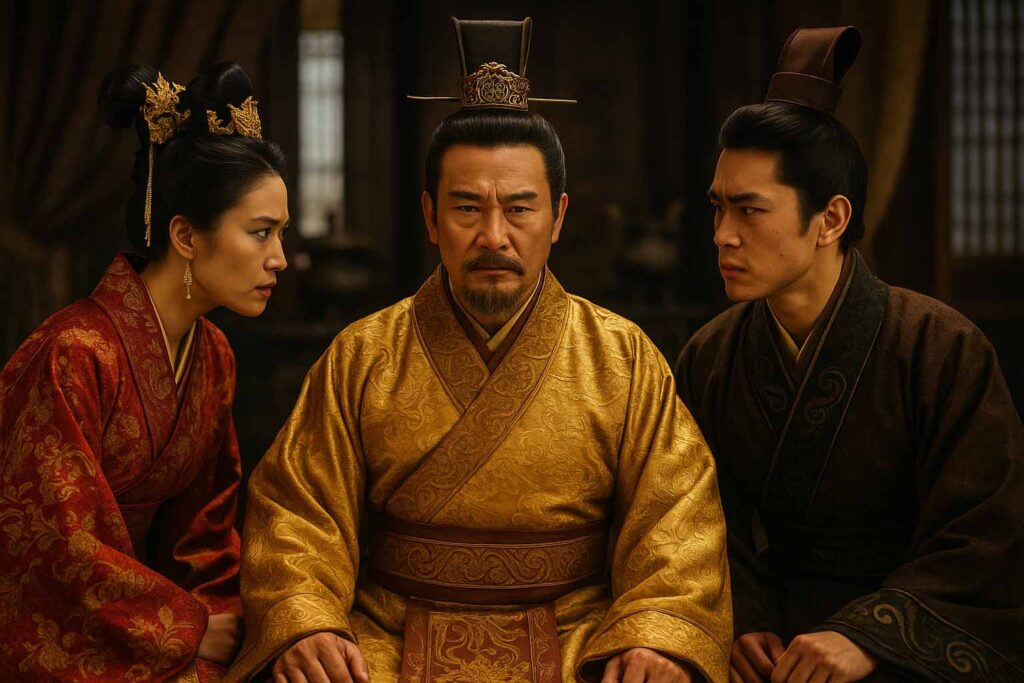
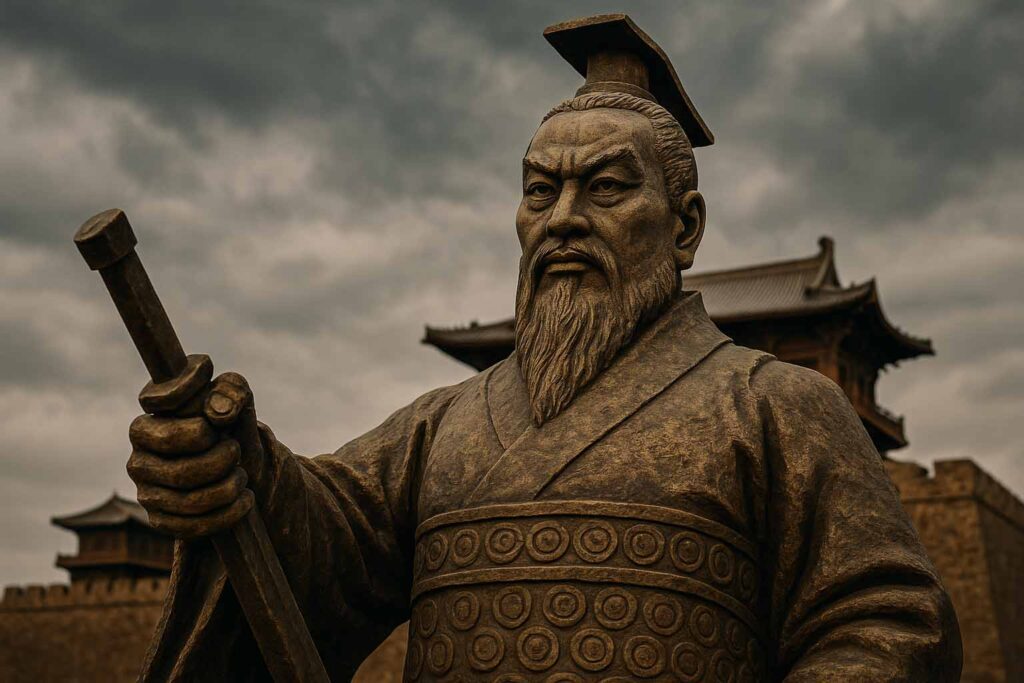
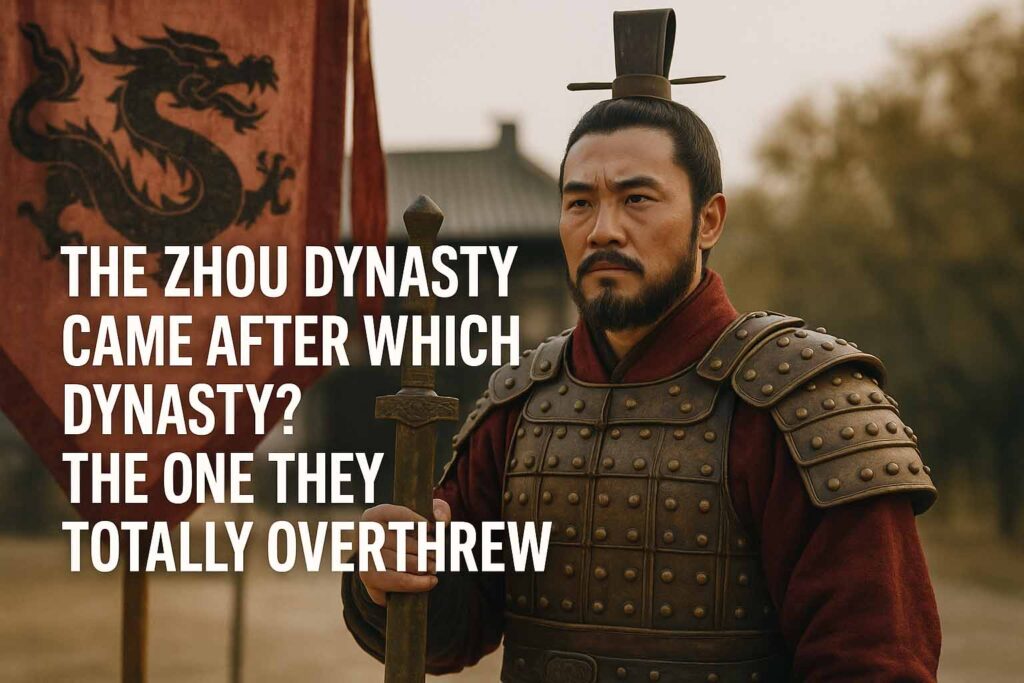
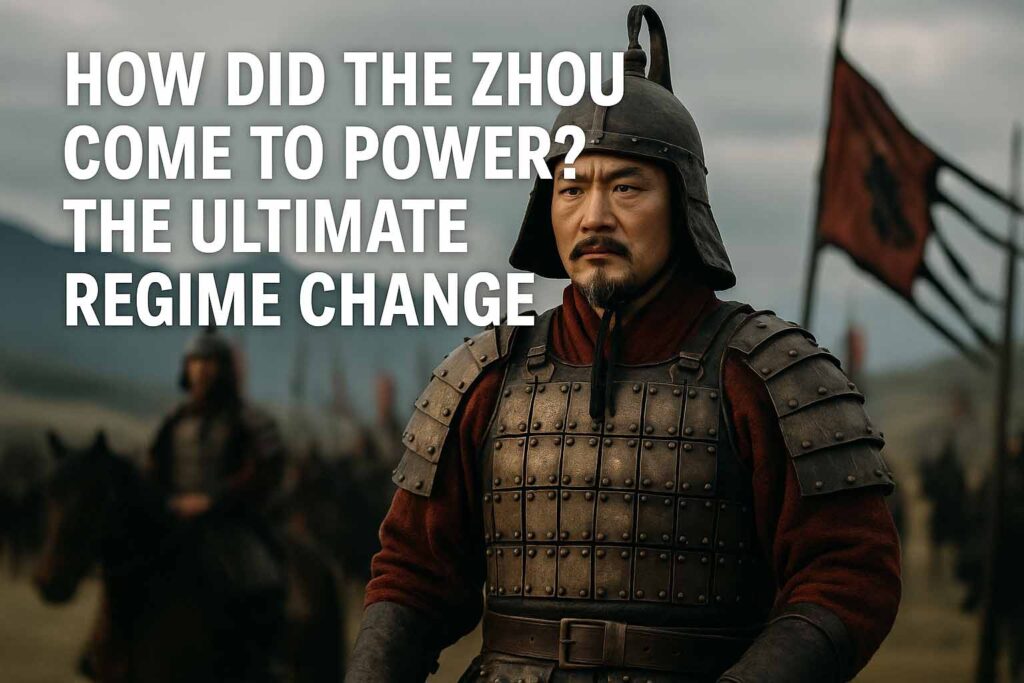
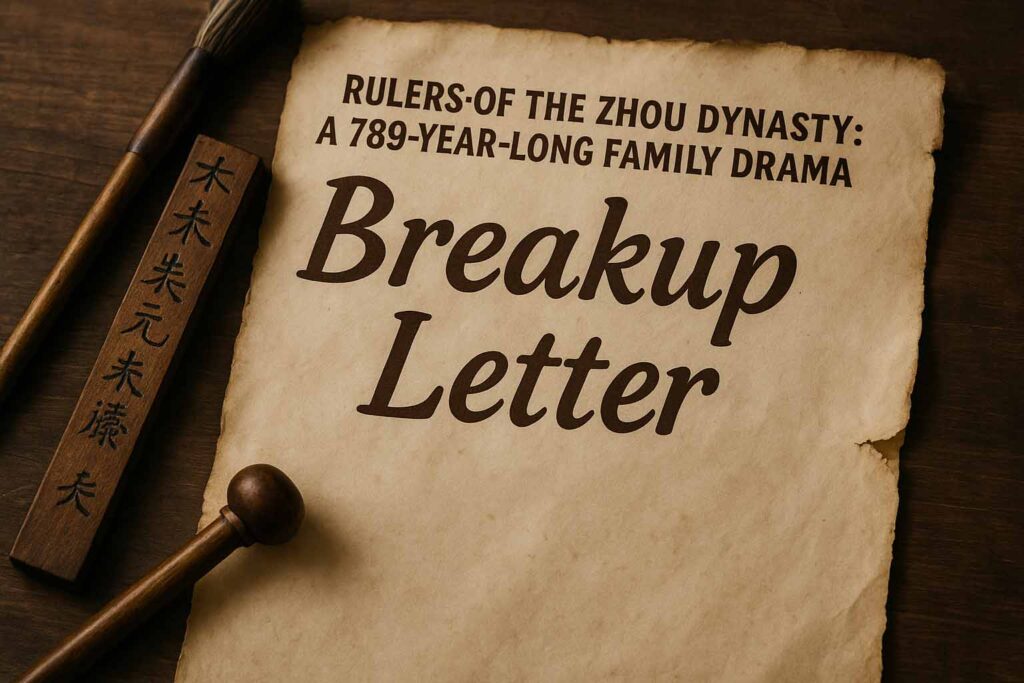
No comment yet, add your voice below!